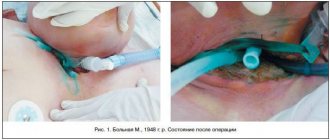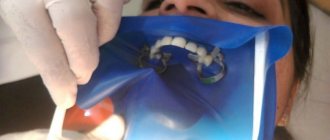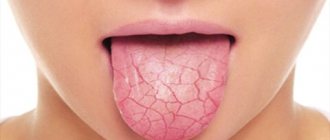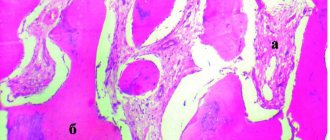The coronavirus infection has caused a lot of fear and anxiety. People were worried about their lives and health – both their own and those of their loved ones. Psychologists say that since the beginning of the pandemic, the number of depression and neurotic disorders has increased. Now that many have already recovered from “corona,” a new one has been added to the listed problems. It turned out that some patients experience olfactory and taste hallucinations after coronavirus.
To make an appointment, call the number 8(969)060-93-93.
About taste and smell
The perception of smell and taste are closely related. This is an evolutionarily determined feature of the human body. The smell helps to determine whether a product is edible or not. Moreover, if sour, sweet, bitter or salty can be identified by taste without the participation of smell, then recognition of complex information, for example, distinguishing between strawberries and raspberries, is possible only with the simultaneous analysis of smell and taste.
Information from the olfactory cells in the nose and the papillae on the tongue enters one part of the brain, where it is integrated and interpreted in a certain way. Since one part of the central nervous system is responsible for processing data about smells and tastes, when this part is damaged, combined hallucinations and changes in perception are often observed.
general characteristics
A pathological disorder of taste perception is called dysgeusia.
Such a “perversion” of taste sensations can be a sign of the development of neurological, hormonal, mental disorders and other diseases, including those caused by a deficiency of certain substances in the body. If the taste of the products remains unchanged, this diagnosis can be excluded. In this case, we are talking about the temporary persistence of an unusual taste in the mouth, and most often the problem disappears when the cause of its appearance is eliminated.
About hallucinations
Gustatory hallucinations are false sensations of taste. Appear regardless of food intake. A person can feel the sickly sweet taste of ordinary tap water, feel that any food “tastes” burnt, unbearably bitter or astringent. A person does not know how to get rid of constant unpleasant sensations. The inability to distinguish the taste of food and strange signals from the sensory organs lead to a decrease or loss of appetite.
Olfactory hallucinations after coronavirus usually occur simultaneously with taste ones. They often come to the fore. They can persist for several days in a row, become unbearable, and cause nausea. The two listed types of hallucinations, combined with a weakening of the body after Covid, worsen the condition of the nervous system and slow down recovery.
Help before diagnosis
In most cases, the following help to get rid of the symptom:
- keeping the oral cavity clean;
- regular and balanced nutrition;
- cessation of smoking, alcohol abuse;
- drink enough fluid during the day;
- moderate activity after meals.
You can temporarily remove the taste by thoroughly brushing your teeth, rinsing your mouth with water and lemon juice or baking soda, chewing gum, or special mouth fresheners.
What are they complaining about?
Theoretically, false perceptual cues can be pleasant, neutral, or aversive. But in practice, people much more often complain about unpleasant, difficult to bear or unbearable sensations. The most common variants are the repulsive sweetish taste and disgusting smell of fish.
Other possible complaints include combinations of burning, acetone and burnt onions, tobacco smoke, a rotten, “dead” feeling. Some people experience not non-existent, but altered tastes and smells; such conditions are called dysgeusia and parosmia.
Connection with COVID-19
Coronavirus affects not only the respiratory organs, but also other body systems, in particular the central nervous system. The neurotropic effect of the virus explains the damage to the center responsible for the perception of taste and olfactory sensations. Violations are detected in every fourth person who has recovered from coronavirus infection. At risk are patients who, during their illness, suffered from anosmia and agesia (complete or almost complete absence of smells and tastes).
On average, false sensations occur 4-5 months after recovery. Scientists do not yet have enough data to form a scientifically based opinion on this issue, but experts in the field of neurology suggest that the unpleasant effect may be associated with the gradual restoration of sensitive nerve trunks previously damaged by viruses.
Diagnostics
The first step in finding the cause of an unpleasant taste in the mouth should be a trip to the dentist: he will immediately determine the possible connection of the symptom with diseases of the teeth and surrounding tissues.
If the problem does not go away, you should consult a therapist: a specialist will help you understand the likely causes of the symptom. For an accurate diagnosis, the results of the following studies may be needed:
- clinical and biochemical blood tests (liver, kidney tests, glucose levels, lipid profile);
- tests to evaluate thyroid function;
- Ultrasound of the abdominal organs;
- fibrogastroduodenoscopy (FGDS);
- pH-metry of the stomach;
- tests for Helicobacter pylori infection;
- electroencephalography (EEG), magnetic resonance imaging (MRI) of the head.
The choice of diagnostic algorithm depends on the most likely cause of the development of an unpleasant taste in the mouth.
About nerve restoration in simple words
Neurologists draw a parallel with the return of sensitivity after prolonged exposure to an uncomfortable position. When a person puts pressure on an arm or leg, they go numb. Then non-existent goosebumps begin to “run” along the limb. And only after this does normal sensitivity return.
The same thing happens with taste and smell. This is just an unpleasant period that needs to be lived through. True, returning to normal in the case of COVID takes much longer. It is impossible to say exactly how much yet due to the small number and short duration of observations. It takes 2 to 5 years to obtain reliable statistical information.
Most Russian researchers agree that symptoms should disappear approximately six months after illness . That is, unpleasant sensations, on average, will last from 1 to 2 months. German doctors agree with this position, but are more inclined to 2 months. Italian scientists are more pessimistic. They believe that features are fully returned after 80 days.
Causes of sweet taste in mouth
Poor nutrition
The most common causes of a sweetish taste in the mouth are chronic overeating, abuse of simple carbohydrates and fatty foods.
As a result, carbohydrates are intensively broken down into glucose, the penetration of which into saliva causes the sensation of sweetness. An obsessive unpleasant taste often bothers you in the evening. You can get rid of it by brushing your teeth or rinsing your mouth. A sweet taste is often found in people following a low-carbohydrate diet for a long time. The feeling of sweetness is caused by the intensive breakdown of fatty acids for the body's energy needs, which produces ketone bodies and other chemical compounds that have a sweetish taste. The symptom bothers the patient constantly. It is accompanied by general weakness, decreased muscle strength, and regular severe headaches.
To give up smoking
A common cause of a sweet taste in the mouth in men is disruption of the taste buds due to smoking cessation. Periodically, there is a cloying sweetish sensation in the mouth that is not associated with food. The symptom is most pronounced in the first months of getting rid of a bad habit, then the functioning of the taste apparatus returns to normal. The symptom is aggravated by constantly sucking lozenges, which is often done by smokers during the period of quitting cigarettes.
Stress
An increase in the concentration of first adrenaline and then corticosteroids in response to a psycho-emotional shock contributes to an increase in glucose levels in the blood and, consequently, in saliva. This is perceived by the patient as a feeling of sweetness in the mouth. Taste discomfort may be accompanied by thirst, dry mucous membranes, fear, anxiety, and muscle tremors.
The condition is more pronounced at night, decreases or temporarily stops after drinking large quantities of ordinary water and completely normalizes on its own after the end of the traumatic situation. Less commonly, stress glycogeusia persists for longer than 6-8 days and serves as one of the possible signs of developing depression or emerging neurosis.
Diabetes
Complaints about the periodic occurrence of a sweet taste without an obvious reason are a typical sign of impaired carbohydrate metabolism and incipient diabetes. Patients complain of severe dryness in the oral cavity, against the background of which an unpleasant sweetish taste sensation appears. Also characterized by a strong feeling of thirst, increased appetite and an increase in the amount of daily urine.
A feeling of sweetness in the mouth, accompanied by increasing malaise and headache, indicates the risk of developing ketoacidosis, a complication of diabetes mellitus in which the formation of toxic compounds occurs. At first, patients feel a sweet taste, then it changes to a bitter taste, and the smell of acetone is felt from the mouth. This condition is an indication for emergency medical care.
Pregnancy
During a normal pregnancy, women often experience atypical taste sensations that are not associated with food intake. The sweetish taste appears at any time of the day. It is often enhanced by the use of vitamin complexes and other supplements that doctors prescribe for pregnant women. With toxicosis, an unpleasant taste aggravates nausea and provokes vomiting.
In pregnant women, a sweet taste in the mouth can also be caused by pathological reasons; most often it is caused by the development of gestational diabetes. The symptom is determined in the second half of pregnancy. Unpleasant taste sensations persist throughout the day. Pregnant women also notice increased thirst and an excessive increase in appetite, while their body weight increases slightly.
Pancreatitis
Complaints of a sweetish taste in the morning or during long breaks between meals are characteristic of damage to the pancreas. The disorder bothers patients most when waking up; after breakfast, the unpleasant feeling disappears. Also with pancreatitis, periodic pain in the left hypochondrium, nausea and heaviness in the abdomen are observed. Sometimes vomiting occurs, after which the sickly sweet taste in the mouth intensifies.
Gastrointestinal diseases
The symptom is detected in hyperacid conditions (gastritis, gastroesophageal reflux disease), which are accompanied by periodic reflux of stomach contents into the esophagus and oral cavity. The sweetest taste is most pronounced after bending the body, intense physical activity, or prolonged stay in a horizontal position. The unpleasant feeling decreases after brushing your teeth, but does not disappear completely.
Purulent processes in the mouth
Gingivitis, stomatitis, deep caries with the addition of bacterial flora are accompanied by the formation of pus, which, accumulating in the spaces between the teeth and gum pockets, causes an irritating sweet taste in the mouth. The symptom is more pronounced in the morning. With insufficient oral hygiene, it is periodically observed throughout the day. In addition to the taste, patients are concerned about toothache that occurs spontaneously or occurs while eating.
ENT diseases
Chronic infectious processes in the paranasal sinuses or tonsils, caused by staphylococci, streptococci or Pseudomonas aeruginosa, provoke a sweetish taste. Patients with chronic tonsillitis and sinusitis note that taste discomfort does not have any visible cause and disappears after rinsing the mouth with water or eating food. The symptom often develops in the morning, when during night sleep the purulent contents of the nasal cavity drain into the pharynx.
Neurological disorders
In case of traumatic brain injury or brain damage due to intoxication, the nuclei of the cranial nerves responsible for the formation of taste sensations are involved in the pathological process. At the same time, patients lose the ability to distinguish the tastes of food and often feel a monotonous sweetish taste in the mouth for no reason. Taste disorder is combined with salivation disorders and swallowing disorders.
Rare causes
- Chemical poisoning
: pesticides, phosphorus-containing toxic substances (phosgene, etc.). - Oncopathology
: lung cancer, malignant bronchial neoplasia. - Complication of chemotherapy
.
What to do
The exact recipe has not yet been found; research in this area continues. According to experts in the field of sensory disorders, training will be useful. It is recommended to inhale essential oils of lemon, clove and rose daily. This will help the brain become familiar with smells again and learn to recognize them, and restoring the sense of smell will help normalize taste sensations.
It is important to maintain peace of mind, eliminate stress and not “work yourself up”, fearing that the changes will remain forever. In the vast majority of cases, everything returns to normal over time. Strong experiences can provoke a deterioration in mental state, and this will have a bad effect on well-being and on the body’s ability to heal itself. If it is difficult to independently cope with feelings about taste hallucinations after Covid, you should seek help from a psychologist or psychotherapist.
Content
- Diagnosis of taste disorders in children
- Causes of taste disorders in children
Taste plays a huge role in a child’s life. They are responsible for the sensitive papillae, which are located on the surface of the tongue.
The gustatory system is closely related to the sense of smell. When a child’s taste is impaired, the sense of smell usually also suffers. Source: Kotova I.B., Kanarkevich O.S. Psychology of taste and perception // Humanization of education
By the time of birth, the baby’s peripheral part of the taste analyzer is already well developed. A newborn's taste buds are located on a wider surface than those of an adult. In addition to the tongue and the posterior wall of the nasopharynx, they are located on the inner surface of the cheeks, hard palate, and mucous membrane of the lips. A baby has a higher threshold of taste sensations than an adult. When introducing unfamiliar food, a child may refuse to eat due to unusual sensations. At the age of two months, children already distinguish 4 basic tastes, and a three-month-old baby is able to distinguish the concentrations of taste stimuli. As children grow, they learn to analyze nuances of taste more subtly.
If the symptom does not go away
Partial restoration of smell and taste is considered as evidence of a favorable prognosis. You need to wait until the process is completed. If the disturbances persist for 2 or more months and do not change over time, you should be examined in detail by a neurologist and otolaryngologist . Hallucinatory phenomena, parosmia and dysgeusia can be provoked not only by COVID, but also by a number of other diseases.
A prolonged period of rehabilitation can be considered as an indication for therapeutic measures to restore peripheral sensory nerves. The therapeutic program includes medications to improve microcirculation, anticholinesterase drugs and vitamin complexes, primarily containing B vitamins.
Symptoms
Let us consider in more detail the characteristics of the symptom of the disorder depending on the cause that provoked it. A sweet and sour taste in the mouth appears after consuming large amounts of sugar, lactose-containing foods and coffee. Other causes of the symptom include:
- sudden cessation of smoking;
- liver pathologies;
- dental diseases (caries, periodontitis, gingivitis);
- poisoning by toxic substances at work;
- uncontrolled use of certain types of drugs;
- diabetes.
A bitter-sour taste in the mouth is most often associated with dietary errors. It can also appear due to bad habits such as smoking or drinking alcohol.
List of other factors causing discomfort:
- taking antibiotics, allergy medications, NSAIDs, medications for seizures;
- problematic outflow of bile from the body;
- gallbladder diseases;
- liver dysfunction;
- duodenal ulcer;
- gastritis;
- initial stages of diabetes;
- hormonal imbalance (during pregnancy, puberty or menopause);
- chronic anemia.
When taking medications, acid in the mouth will not appear immediately. This requires a long course of drug treatment.
A sour-salty taste occurs with the development of sialodenitis. The problem is associated with inflammation of the salivary glands. It develops independently or as a complication of a prolonged runny nose and other otolaryngological pathologies.
Other causes of symptoms include:
- abuse of carbonated drinks or coffee;
- dehydration of the body;
- uncontrolled consumption of alcoholic beverages;
- damage to the sinuses;
- poor nutrition.
Cost of services
| CONSULTATIONS OF SPECIALISTS | |
| Initial consultation with a psychiatrist (60 min.) | 6,000 rub. |
| Repeated consultation | 5,000 rub. |
| Consultation with a psychiatrist-narcologist (60 min.) | 5,000 rub. |
| Consultation with a psychologist | 3,500 rub. |
| Consultation with Gromova E.V. (50 minutes) | 12,000 rub. |
| PSYCHOTHERAPY | |
| Psychotherapy (session) | 7,000 rub. |
| Psychotherapy (5 sessions) | 30,000 rub. |
| Psychotherapy (10 sessions) | 60,000 rub. |
| Group psychotherapy (3-7 people) | 3,500 rub. |
| Psychotherapy session with E.V. Gromova (50 minutes) | 12,000 rub. |
This list does not contain all prices for services provided by our clinic. The full price list can be found on the “Prices” , or by calling: 8(969)060-93-93. Initial consultation is FREE!
Is it possible to ignore
Not paying attention is not the best solution. Quite a lot of time passes between illness and the occurrence of coronavirus infection. In such circumstances, it is difficult to say unequivocally that hallucinations are a consequence of infection. Most often, hallucinatory manifestations are provoked by cerebral damage against the background of cerebral circulation disorders, tumors, traumatic brain injuries and inflammatory pathologies of the central nervous system.
In addition, this symptom can be observed in schizophrenia, epilepsy, psychoses of various etiologies, exogenous and endogenous intoxications, and taking potent medications. Sometimes the cause is damage to the nasal mucosa, dental diseases and diseases of the digestive system. For your own peace of mind, it is better to exclude all other causes of hallucinations, and only then begin to restore your sense of smell and taste according to the schemes proposed for post-Covid syndrome.
You can make an appointment by phone 8(969)060-93-93.
Treatment
The best and most effective method of treating a symptom is to eliminate the cause of its occurrence. If the bad taste in your mouth is caused by a dental problem, it is important to get rid of tooth decay or other diseases as soon as possible.
If an unpleasant taste occurs due to pathology of certain organs and metabolic disorders, the doctor prescribes treatment for the underlying disease.
Conservative therapy
Depending on the characteristics of the symptom, to eliminate it, the doctor may prescribe drugs from the following groups:
- antiseptics;
- antacids;
- choleretic drugs;
- hypoglycemic agents;
- antidotes and detoxification drugs.
The doctor selects treatment individually. The treatment regimen depends on the causes of the taste, its severity, concomitant diseases and other features of the clinical case.
Sometimes, to get rid of the taste in the mouth, you have to resort to medications. Photo by JESHOOTS.com: Pexels
Physiotherapy
Methods of physiotherapeutic treatment in cases of unpleasant taste in the mouth help to cope with chronic inflammatory and metabolic processes, and eliminate other symptoms of pathology.
For example, for diseases of the ENT organs, rinsing with sea salt solutions, ultrasound treatment and UV irradiation, and therapeutic inhalations are used.
Warming procedures are contraindicated for patients with acute conditions - inflammation, likelihood of bleeding, severe pain.








